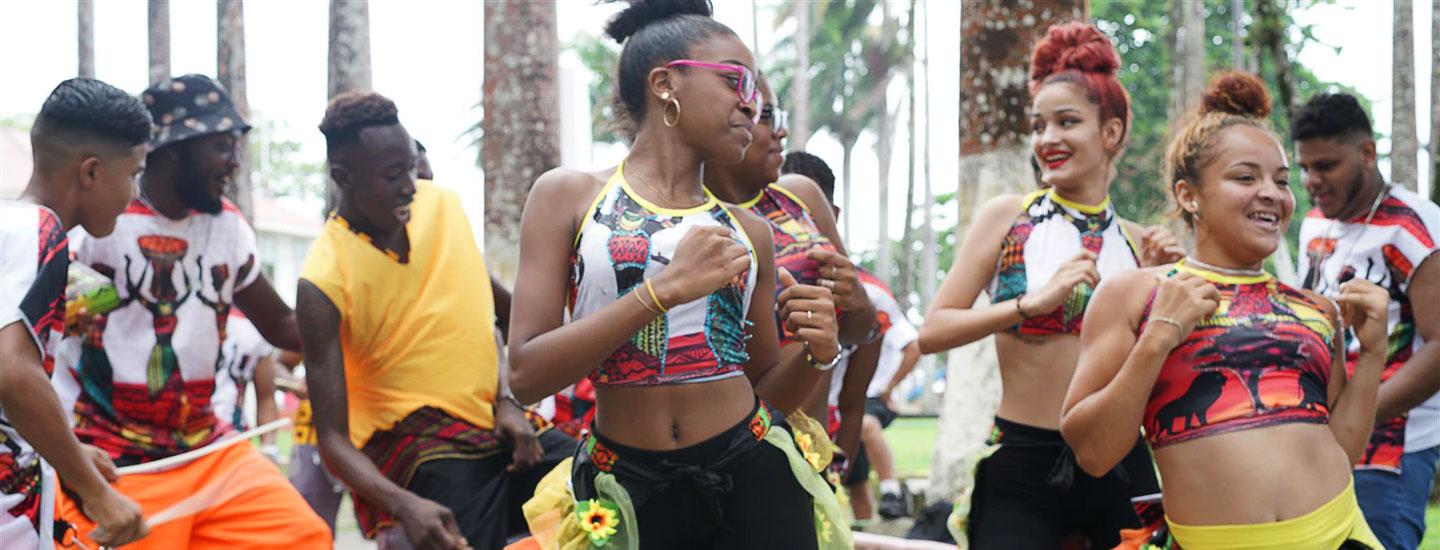Costa Rica is not only defined by its incredible landscapes, the beauty of its flora and fauna, or its world-class beaches: there is something more that lies just under the surface in our country, which fills us with pride: our diverse, multi-ethnic heritage.
To understand the country’s multicultural beginnings, we need to go back to its historic roots. The arrival of Christopher Columbus in 1502 to the Caribbean coast brought the arrival of Jamaican inhabitants including people of Asian, Indian, Chinese and Italian descent, among others. Not to be forgotten are the Bribri and Cabécar indigenous groups, who inhabited the mountains of Talamanca, where they remain to this day.
That is why each time we approach the Caribbean coast we see the combination of delicious food, marvelous people, rhythmic dances and an African culture that remains vibrant.
According to the latest national census, 8% of Costa Ricans are of African descent, half of whom live in the province of Limón, on the Caribbean coast.
In the 1980s, Costa Rica decreed August 31 as the Día del Negro (Black Peoples Day), which was later expanded by degree to the celebration of the Día del Negro y la Cultura Afrocostarricense (Black Peoples and Afro-Costa Rican Culture Day). On April 26, 2018, Law no. 9526 was published in the National Gazette, declaring August the Month of the History of African-Descended Peoples in Costa Rica.
This date was chosen in commemoration of the First International Convention of the Negro Peoples of the World, which concluded with a ceremony in Madison Square Garden on August 31, 1920. The discussions at the conference culminated in the publication of the Declaration of the Rights of the Negro Peoples of the World.
An additional impetus for the country to come together in celebration is the commemoration of the International Decade for People of African Descent in 2015-2024, declared by the General Assembly of the United Nations, citing the need to strengthen local, regional and international cooperation regarding the full enjoyment of economic, social, cultural, civil and political rights by people of African descent, as well as their full and equal participation in every aspect of society.
This year, for the first time, a National Agenda for the Commemoration of Afro-Costa Rican Culture was presented, the purpose of which is to promote the inclusion and visibility of the cultural contributions of Afro-Costa Rican people.
That is why the country is celebrating over 110 activities in a national agenda filled with conversations, documents, poetry, Caribbean food tastings, photographic exhibits and cultural activities.
An August 31st full of color and music
This year will see the 21st annual Festival of Black Culture in Limón, which seeks to strengthen and preserve Afro-Costa Rican values. Since 1999, this colorful festival has filled the Caribbean province with music, celebrations and plenty of flavor, to the delight of domestic and international tourists who visit the region during these dates. The activities are organized by the Civic and Cultural Committee of the Black Peoples of Limón. This group assumed the challenge of creating a project that would last over time and would not allow the traditions of this incredible culture to be lost. Though people can enjoy various cultural activities over the course of the month, it is at the end of August that most families come together to experience the African flavors up close. The activities culminate in the most important celebration, Black Peoples and Afro-Costa Rican Culture Day, held on August 31. This is the day on which the Grand Parade de Gala is held. The parade begins at 12:30 p.m., leaving from Parque Asís Esna. Over the course of the parade, families can enjoy the best of the region’s music, dances, concerts and cuisine, as well as many more activities that mark this day, which is important for all Costa Ricans.





